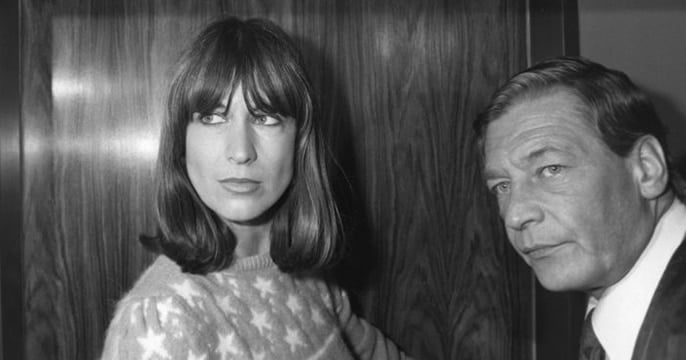The Story of Marianne Bachmeier: A Mother’s Vengeance in the Courtroom
On March 6, 1981, in Lübeck, Germany, Marianne Bachmeier walked into a courtroom with a clear purpose.
Then, in a shocking moment, she pulled a loaded pistol from her purse and opened fire on 35-year-old Klaus Grabowski, a convicted sex offender.
Grabowski had been accused of kidnapping, abusing, and murdering Marianne’s 7-year-old daughter, Anna Bachmeier. Seconds after being shot, Grabowski collapsed and died on the courtroom floor, hit by seven of Marianne’s bullets.
Immediately arrested, Marianne showed no remorse for her actions. Forty years later, her story still captures public attention, with her actions continuing to divide opinion across Germany.
A Tragic Past
The loss of a child is an unimaginable tragedy, one that often leaves a permanent scar on a parent. For Marianne, her life was already marked by hardship long before the tragic event in May 1980 that would change everything.
A struggling single mom in her 30s, Marianne ran a pub in Lübeck. Her own youth had been filled with abuse and trauma. Her father was a member of the Waffen-SS, and she herself had been raped several times by different men. At 16, she became pregnant and gave the baby up for adoption, later doing the same at 18. But in 1973, Marianne gave birth to Anna, her third child, whom she raised on her own.
Anna was described as a “happy, open-minded child,” but the family would soon experience a devastating blow.
In May 1980, after an argument with her mother, Anna decided to skip school and visit a friend. But on her way, she was kidnapped by Klaus Grabowski, a local butcher. He held her captive in his apartment, abused her, and eventually strangled her to death. He then disposed of her body in a box by the canal.
Grabowski, a convicted sex offender, had previously served time for assaulting two young girls. In prison, he had undergone voluntary castration and later hormone therapy to reverse the effects. After Anna’s body was discovered, he was arrested when his fiancée turned him in.
Grabowski confessed to the murder but denied abusing Anna, claiming she had tried to extort him. He even went so far as to accuse her of threatening to tell her mother about his sexual misconduct, which he claimed led him to kill her. The court dismissed his story.
The Shocking Act
By the third day of his trial, Marianne had had enough. On March 6, 1981, she smuggled a Beretta pistol into the courtroom and, without warning, shot Grabowski. Seven out of the eight bullets hit him, killing him instantly.
Afterward, Marianne calmly dropped the gun and spoke out: “He killed my daughter… I wanted to shoot him in the face, but I shot him in the back… I hope he’s dead.”
She also called him a “pig” before being arrested by the police.
A Divided Opinion
Marianne was charged with murder and put on trial in 1982. Her defense claimed she acted in a state of emotional distress, but experts suggested her actions were premeditated, as she had practiced with the gun beforehand. In a written statement, Marianne told police, “I did it for you, Anna,” signing the note with seven hearts, representing Anna’s seven years of life.
The case garnered global media attention. Some people viewed Marianne as a hero—someone who avenged her daughter’s death and brought justice in a way the courts couldn’t. Others, however, criticized her for taking the law into her own hands, arguing she should have let the legal system deal with it.
In 1983, Marianne was convicted of manslaughter and sentenced to six years in prison for unlawfully possessing a firearm. However, she served only three years before being released.
Her actions sparked national debate, with surveys showing mixed opinions: 28% thought her sentence was appropriate, 27% believed it was too harsh, and 25% thought it was too lenient.
Life After the Trial
After her release, Marianne moved to Nigeria, where she married a German teacher. She later divorced in 1990 and moved to Sicily, Italy. Unfortunately, her health declined, and she was diagnosed with pancreatic cancer. She moved back to Lübeck, where she passed away on September 17, 1996.
Marianne’s story remained a topic of interest for years, with media outlets continuing to write about her case even after her death.
In a rare interview in 1994, Marianne explained her actions, saying she shot Grabowski after carefully considering the situation and to prevent him from spreading more lies about Anna.
The Legacy of Marianne Bachmeier
Marianne’s act of vigilantism remains a controversial subject. While some view her as a tragic hero who avenged her daughter’s death, others argue that she crossed a line by taking justice into her own hands.
What do you think about Marianne Bachmeier’s decision? Was she justified in her actions, or did she make a dangerous choice? Share your thoughts in the comments below.
